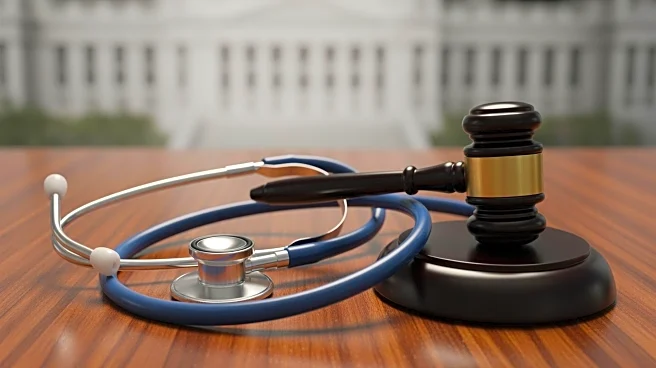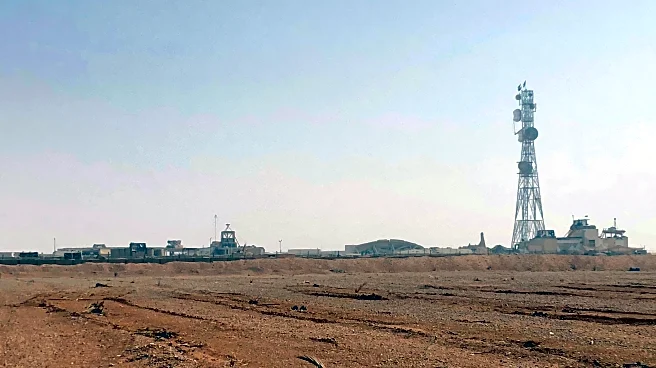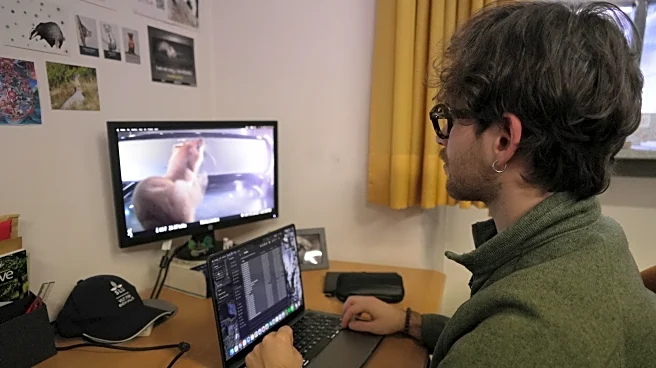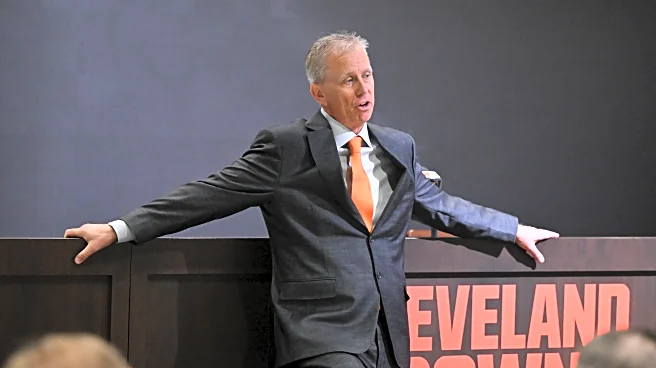What's Happening?
Following recent Democratic victories in key statewide elections, Senate Democrats have intensified their demands for President Trump to negotiate on health care subsidies as a condition for reopening
the government. The ongoing government shutdown has led to significant disruptions, including the furlough of hundreds of thousands of federal workers and the interruption of nutritional benefits for millions of Americans. Despite some centrist Democrats previously indicating a willingness to compromise, the election results have bolstered the party's resolve to maintain their stance. Private meetings between Democratic moderates and centrist Republicans have been taking place to discuss potential spending legislation to fund the government.
Why It's Important?
The government shutdown, now the longest in U.S. history, has far-reaching implications for federal employees, public services, and the broader economy. The Democratic Party's strengthened position following the elections could shift the dynamics of the negotiations, potentially leading to a resolution that addresses health care subsidies. The shutdown's impact on air traffic and public services underscores the urgency for a bipartisan solution. The Democratic victories may also influence future legislative priorities and negotiations, affecting public policy and political strategies.
What's Next?
As the shutdown continues, pressure mounts on both parties to reach a compromise. The Democratic Party's insistence on health care negotiations could lead to further discussions with centrist Republicans, potentially paving the way for a bipartisan agreement. The ongoing private meetings suggest that there may be room for negotiation, although the timeline for a resolution remains uncertain. The political landscape following the elections may also prompt shifts in strategy from both parties as they navigate the implications of the shutdown.











